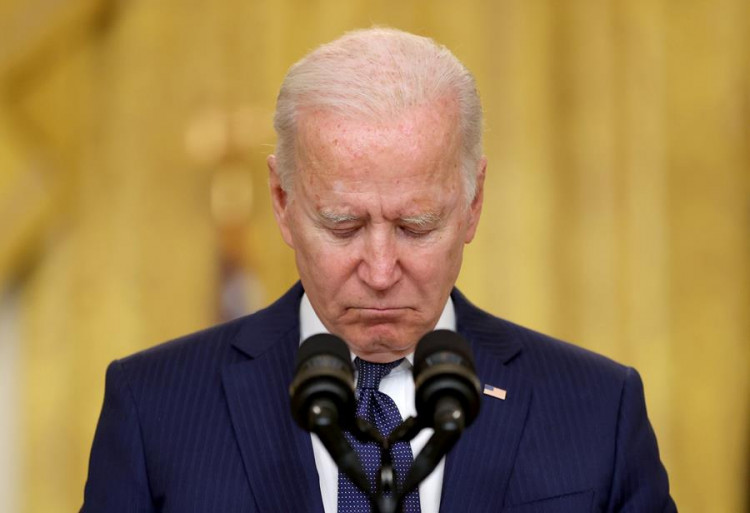In a wide-ranging interview with MSNBC's Jonathan Capehart that aired on Saturday, President Joe Biden walked back his use of the term "illegal" to describe the suspect in the murder of Laken Riley during his State of the Union address. He also defended his direct criticism of the Supreme Court for its 2022 decision in Dobbs v. Jackson Women's Health.
"I shouldn't have used 'illegal.' It's 'undocumented,'" Biden said when asked about his word choice during the speech. "And look, when I spoke about the difference between Trump and me, one of the things I talked about on the border was his - the way he talks about vermin, the way he talks about these people polluting the blood. I talked about what I'm not going to do, what I won't do. I'm not going to treat any, any, any of these people with disrespect."
The president's apology marks an apparent reversal from his initial defense of the term on Friday when he was asked if he regretted using the word "illegal" to describe immigrants. During his State of the Union speech, Biden referred to Jose Antonio Ibarra, a Venezuelan who was previously arrested by federal authorities after having crossed the border into the U.S. and has been charged with killing 22-year-old nursing student Laken Riley.
Biden's campaign also doubled down on his attacks on former President Donald Trump and the Supreme Court justices he appointed in a statement shared first with NBC News. The statement, from senior campaign spokesperson Lauren Hitt, responded to news about the passage of a fetal personhood bill in the Iowa state House that could have negative implications for patients seeking in vitro fertilization treatments.
"IVF is at risk across the country and there's one man to blame: Donald Trump. Donald Trump proudly brags he was able to 'kill' Roe and now women across the country are facing the consequences. Trump's record speaks for itself: his Supreme Court pick Amy Coney Barrett refused to say if she would oppose criminalizing IVF," Hitt said.
During the MSNBC interview, Biden stood by his criticism of the Supreme Court's decision in Dobbs v. Jackson Women's Health, which overturned Roe v. Wade. "I think they made a wrong decision. I think they read the Constitution wrong. I think they made a mistake," he said, echoing remarks he made during his State of the Union address when he addressed the justices directly.
The president also discussed the ongoing Israel-Hamas war, suggesting that some steps Israeli Prime Minister Benjamin Netanyahu could take would be going too far. "What is your red line with Prime Minister Netanyahu? Do you have a red line? For instance, would invasion of Rafah, which you have urged him not to do, would that be a red line?" Capehart asked. "It is a red line," Biden said, adding, "but I'm never gonna leave Israel. The defense of Israel is still critical."
The interview, which marks Capehart's second sit-down with Biden during his presidency, covered a range of topics, including the crisis at the southern border. The president rarely grants interviews, specifically challenging, hard-hitting sit-downs with journalists, and has set an unprecedented record in holding fewer interviews and press conferences than any predecessor in the modern era.
During the interview, Biden emphasized the differences between his rhetoric and that of former President Donald Trump when it comes to immigration. "He talks about 'vermin.' The way he talks about these people 'polluting the blood.' I talked about what I'm not going to do. What I won't do, I'm not going to treat any of these people with disrespect," Biden said.
The president's apology for using the term "illegal" has drawn criticism from some Republicans, including former President Trump, who met with Laken Riley's parents backstage at a rally in Georgia on Saturday night. Trump later mocked Biden's apology during his speech, telling the crowd, "They have a new name that's even worse. They have a new name. You know what the new name is? Neighbor. They want to call them neighbor."
As the 2024 presidential race begins to take shape, Biden's handling of issues such as immigration, the Israel-Hamas war, and the Supreme Court's decisions on abortion rights are likely to remain in the spotlight. The president's rare interviews, such as his sit-down with Capehart, offer a glimpse into his thinking on these complex and often controversial topics.






